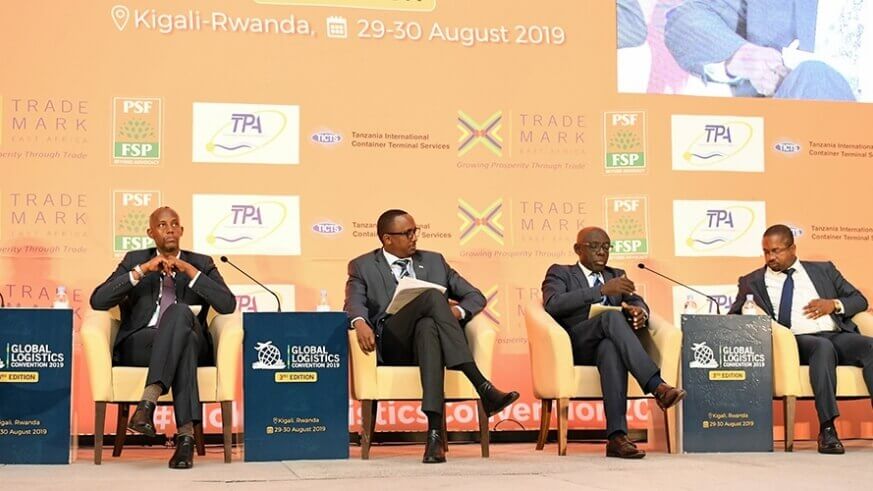
Our Projects are
Transforming African Trade
Quick Contacts
2nd Floor, Fidelity Insurance Centre Waiyaki Way, Westlands

Freight forwarders, transporters and related industry representatives gathered at the Kigali International Convention earlier this week to discuss weighty regional freight issues at the 3rd Global Logistics Convention.
Rwandan daily, New Times, reported that at Monday’s opening session, the country’s permanent secretary for trade and industry, Michel Sebera, “said that the logistics sector is central to economic development and requires attention if countries are to succeed in their development initiatives”.
Abhishek Sharma, transport director at TradeMark Africa, said: “The main player that invests money in logistics infrastructure is the government.
“But the main user of the infrastructure is the industry, the freight forwarders, and others. It is very important that when we are planning logistics, there is a constant dialogue between the government and the logistics players.”
In recent times, Sharma said, “constant dialogue” between all concerned have ensured significant logistical improvements for land-locked Rwanda’s central and northern corridors through Tanzania, Uganda and Kenya.
It had resulted, he said, in the substantial reduction of transit times and road haulage costs.
On the central corridor alone, Sharma explained, the average speed of a truck travelling cross-border had doubled, from 7km p/hour to 14km p/hour.
Switching to corruption, Denis Karera, vice-chair of the East African Business Council, said it was important to eradicate graft because of the dangers it posed to the growth of trade.
He said an escalated shift of freight from road to rail could be one way to take the game away from illicit logistics as rail, he believes, is a better enabler of regulated, efficient freight.
Source: FWT Online
Disclaimer: The views and opinions expressed in this article are those of the authors and do not necessarily reflect the official policy or position of TradeMark Africa.